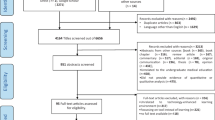Abstract
Objective
This pilot study provides firsthand feedback from medical students and residents in training regarding their perceptions of technology in medicine.
Method
The authors distributed an e-mail invitation to an anonymous Web-based survey to medical students and residents in two different U.S. training institutions.
Results
Respondents unanimously expressed that technology skills were important in medical training and felt it most important to learn about electronic medical records and accessing scientific information on the Internet. At the point of patient care, trainees’ preferred reference sources were the Internet and PDA, in that order. Most clinical trainees felt PDAs were critical in patient care and met their clinical needs, and they were most likely to use them for medication reference. The majority of trainees preferred printed media over digital media for initial learning, but the converse for referencing. Instructor-led small groups were viewed as the best environment in which to receive instruction.
Conclusions
Trainees in medical education are technologically savvy and provide invaluable feedback regarding initiation, development and refinement of technological systems in medical training.
Similar content being viewed by others
References
Baumgart DC: PDAs and their increasing integration with information technology in hospitals could change the way health care is delivered in the future. Lancet 2005; 366: 1210–1222
Hilty DM, Hales DJ, Briscoe G, et al: APA Summit on Medical Student Education Task Force on Informatics and Technology: learning about computers and applying computer technology to education and practice. Acad Psychiatry 2006; 30: 29–35
Medical School Objectives Project: Contemporary Issues in Medicine: Medical Informatics and Population. Washington, DC, Association of American Medical Colleges, 1998
Kaushal R, Barker KN, Bates DW: How can information technology improve patient safety and reduce medication errors in children’s health care? Arch Pediatr Adolesc Med 2001; 155: 1002–1007
Baumgart DC: Personal digital assistants in health care: experienced clinicians in the palm of your hand? Lancet 2005; 366: 1210–1222
Council on Graduate Medical Education Resource Paper: Preparing learners for practice in a managed care environment. Washington, DC, Department of Health and Human Services, HRSA, 1997
ACGME’s Residency Review and Institutional Review Committees, Practice-Based Learning And Improvement component, General Competencies, Version 1.3, established at February 1999 meeting. http://www.acgme.org/outcome/comp/compFull.asp
O’Brien K, Chumley H: Courseware and Distance Learning, Evidence for Electronic Learning, Simulations, Technology in Clerkship Education, Guidebook for Clerkship Directors, 3rd ed Alliance for Clinical Education, 2005
Huang MP, Alessi NE: An informatics curriculum for psychiatry. Acad Psychiatry 1998; 22: 77–91
Parekh SG, Nazarian DG, Lim CK: Adoption of information technology by resident physicians. Clin Orthop Relat Res 2004; April:107-111
Seago BL, Schlesinger JB, Hampton CL: Using a decade of data on medical student computer literacy for strategic planning. J Med Libr Assoc 2002; 90: 202–209
Barrett JR, Strayer SM, Schubart JR: Assessing medical residents’ usage and perceived needs for personal digital assistants. Int J Med Inform 2004; 73: 25–34
Letterie GS: Medical education as a science: the quality of evidence for computer-assisted instruction. Am J Obstet Gynecol 2003; 188: 849–853
Tousignant M, DesMarchais JE: Accuracy of student self-assessment ability compared to their own performance in a problem-based learning medical program: a correlation study. Adv Health Sci Educ 2002; 7: 19–27
Ward M, Gruppen L, Regehr G: Measuring self-assessment: current state of the art. Adv Health Sci Educ 2002; 7: 63–80
Langendyk V: Not knowing that they do not know: self-assessment accuracy of third-year medical students. Med Educ 2006; 40: 173–179
Author information
Authors and Affiliations
Corresponding author
Additional information
Special thanks to Dr. Donald M. Hilty, University of California, Davis, for his suggestions and assistance.
Rights and permissions
About this article
Cite this article
Briscoe, G.W., Arcand, L.G.F., Lin, T. et al. Students’ and Residents’ Perceptions Regarding Technology in Medical Training. Acad Psychiatry 30, 470–479 (2006). https://doi.org/10.1176/appi.ap.30.6.470
Received:
Revised:
Accepted:
Published:
Issue Date:
DOI: https://doi.org/10.1176/appi.ap.30.6.470




